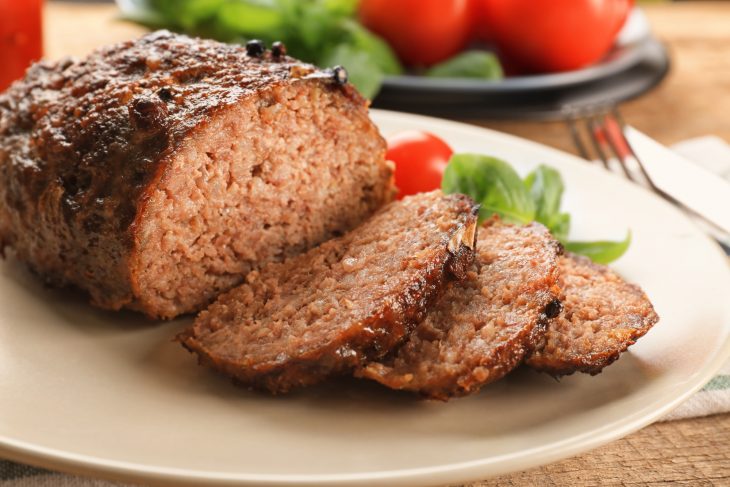
Meatloaf – the comfort food of many cultures, often harking back to childhood memories of family dinners. But what about its nutritional value? In this article, we will take a deep dive into 20 key nutrition facts about meatloaf. As a classic dish with plenty of variations, it’s crucial to understand what goes into a standard meatloaf and how different ingredients can influence its nutritional profile.
Basic Composition
The primary ingredients of a traditional meatloaf include ground meat, bread or breadcrumbs, eggs, and a variety of seasonings. This combination results in a dish that’s high in protein, but also contains carbohydrates and fats.
Protein Powerhouse
One of the key meatloaf nutrition facts is its impressive protein content. A standard serving of meatloaf, which is about 85 grams (or 3 ounces), typically provides around 14 grams of protein. This makes meatloaf a good option for those needing to increase their protein intake.
Fat Content
While meatloaf is rich in protein, it also contains a significant amount of fat. The total fat content can vary widely depending on the type of meat used. A lean meatloaf made with ground turkey or chicken will have significantly less fat than one made with ground pork or beef.
Carb Counts
A unique feature of meatloaf is its incorporation of breadcrumbs or oats, providing carbohydrates alongside protein. A typical serving may contain anywhere between 10-20 grams of carbs. This makes meatloaf a more balanced meal option compared to meat-only dishes.
Sodium Watch
Meatloaf can be high in sodium, mainly due to the seasonings and sauces used. This is important to keep in mind for individuals managing their sodium intake.
Vitamin and Mineral Rich
Beyond macronutrients, meatloaf offers essential vitamins and minerals, including iron, zinc, and B vitamins (particularly B12), which are important for overall health.
Versatility is Key
One of the advantages of meatloaf is its versatility. By swapping out ingredients, you can easily modify the nutrition profile to suit dietary needs or preferences. For example, using lean meat, egg whites, and whole-grain breadcrumbs can create a healthier version.

Fiber Factor
While traditional meatloaf isn’t high in fiber, adding veggies like bell peppers, onions, and mushrooms can boost its fiber content, promoting digestive health and satiety.
Serving Size Matters
A critical part of understanding meatloaf’s nutrition is recognizing the importance of portion size. A larger serving will obviously contain more calories, fat, and sodium.
Sugar Content
Commercially prepared meatloaf or homemade versions using ketchup or barbecue sauce can have a higher sugar content than you might expect. Be sure to consider this when planning meals.
Lean Meat Options
Lean ground turkey or chicken significantly lowers the fat and calorie content of meatloaf without compromising on the protein content.
Meat Alternatives
For vegetarian or vegan diets, lentils, chickpeas, or plant-based meat substitutes can be used to prepare a meatless meatloaf, still providing a good protein source.
Gluten-Free Choices
For those following a gluten-free diet, breadcrumbs can be replaced with options like gluten-free breadcrumbs, oats, or even cooked quinoa.
Dairy in Meatloaf
Some meatloaf recipes call for milk to help keep the loaf moist. If you’re watching your dairy intake, it’s something to be aware of.

Egg Allergies and Substitutes
Eggs are a common ingredient in meatloaf, acting as a binder. If you’re allergic to eggs, you can use substitutes like flaxseeds or chia seeds mixed with water.
Low-Carb and Keto Options
For those following a low-carb or ketogenic diet, alternatives to breadcrumbs (like almond flour or pork rinds) can be used.
High in Cholesterol
Given its meat content, meatloaf can be high in dietary cholesterol. If you have cholesterol concerns, consider using leaner meats or incorporating more plant-based ingredients.
Micronutrient Variations
Different meats offer different micronutrients. For example, beef is high in iron, while turkey is a good source of selenium. This variation adds another layer of nutritional complexity to meatloaf.
Impact of Cooking Method
The way meatloaf is cooked can influence its nutritional content. Baking is a common, healthier method, but grilling or frying could increase the fat content.
Influence of Sides
Lastly, the nutritional value of a meatloaf meal is highly influenced by its accompaniments. Pairing meatloaf with steamed veggies and whole grains can create a balanced meal.
Wrapping Up
Meatloaf, a classic comfort food, can indeed be part of a nutritious diet. Like any dish, the final nutritional profile depends largely on the ingredients used and the serving size. By making thoughtful choices, meatloaf can provide a hearty, protein-rich meal that satisfies taste buds and nutritional needs alike.
Was this page helpful?
Our commitment to delivering trustworthy and engaging content is at the heart of what we do. Each fact on our site is contributed by real users like you, bringing a wealth of diverse insights and information. To ensure the highest standards of accuracy and reliability, our dedicated editors meticulously review each submission. This process guarantees that the facts we share are not only fascinating but also credible. Trust in our commitment to quality and authenticity as you explore and learn with us.
